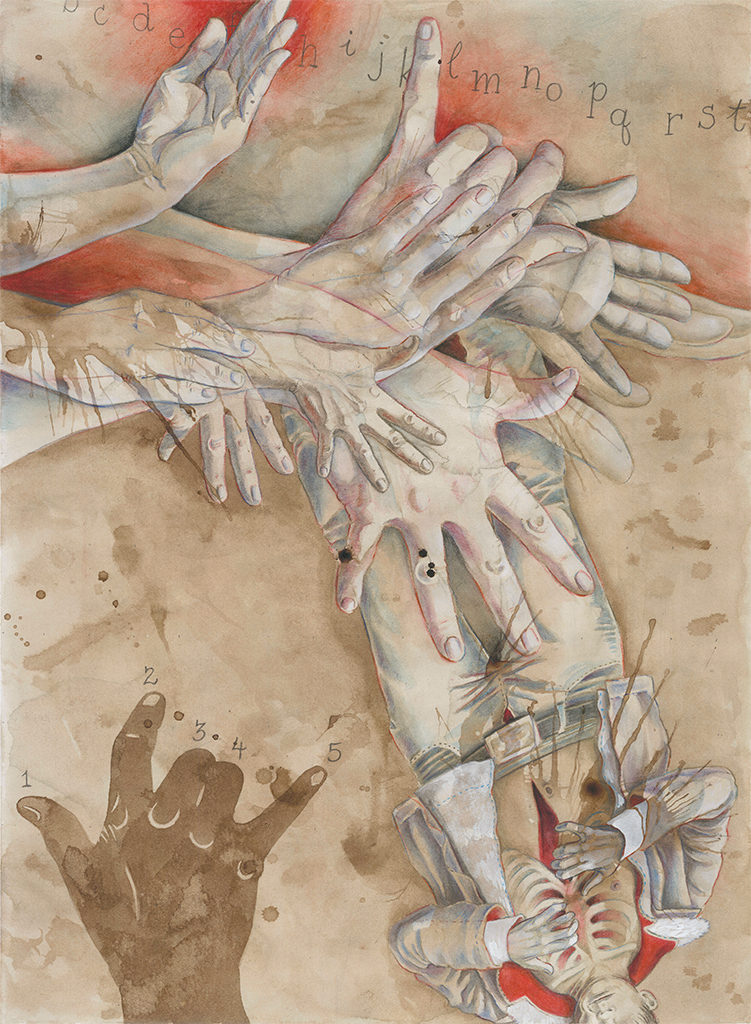Alumni
Zeph Fishlyn
Zeph Fishlyn (pronouns they/them) is a multidisciplinary visual artist and activist dedicated to personal and collective storytelling as nonlinear tools for reinventing our world. Zeph’s public projects, drawings, objects and installations nurture alternative narratives by questioning, dreaming, distorting, celebrating and demanding. Their most recent work explores absurdity, embodiment, intimacy and playfulness as sources of resilience and creative subterfuge.
Zeph is also a serial collaborator with grassroots groups focused on social and economic justice and LGBTQ liberation. Zeph has focused on creative responses to the SF Bay Area’s economic and housing crisis with the Anti-Eviction Mapping Project, Heart of the City Collective and the Anti-Displacement Coalition among others. From 2007-2010 Zeph worked as a researcher, illustrator and storyteller with the Beehive Design Collective‘s True Cost of Coal graphics campaign, an intricate portable mural and workshop developed in collaboration with Appalachian grassroots organizations that has traveled to hundreds of cities in the US and internationally.
Selected Public Projects
The Mobile Office of Landlord-Tenant Affairs (more here)
This mobile, faux office on a bicycle trailer is a research project asking the question, what can art do that government can’t? If current housing logic leads to chronic insecurity, systemic displacement, root shock, and tent cities for the many, then maybe what’s needed is a different logic.
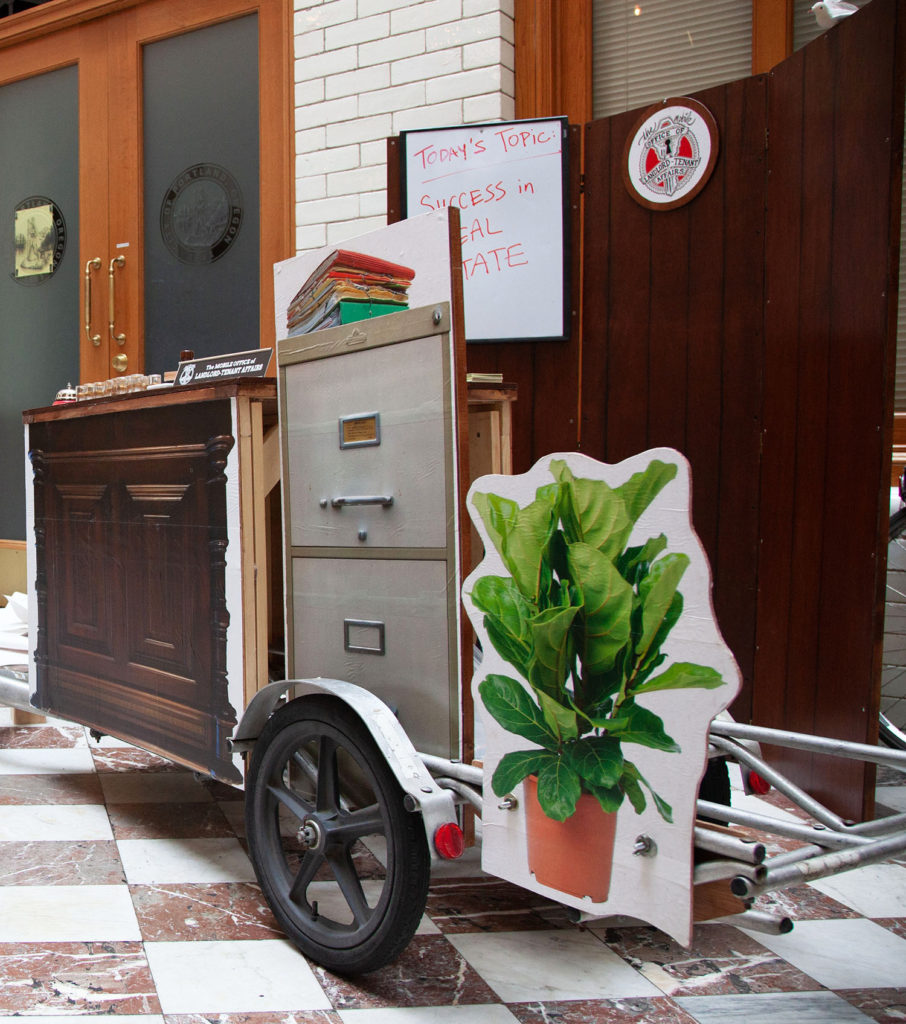
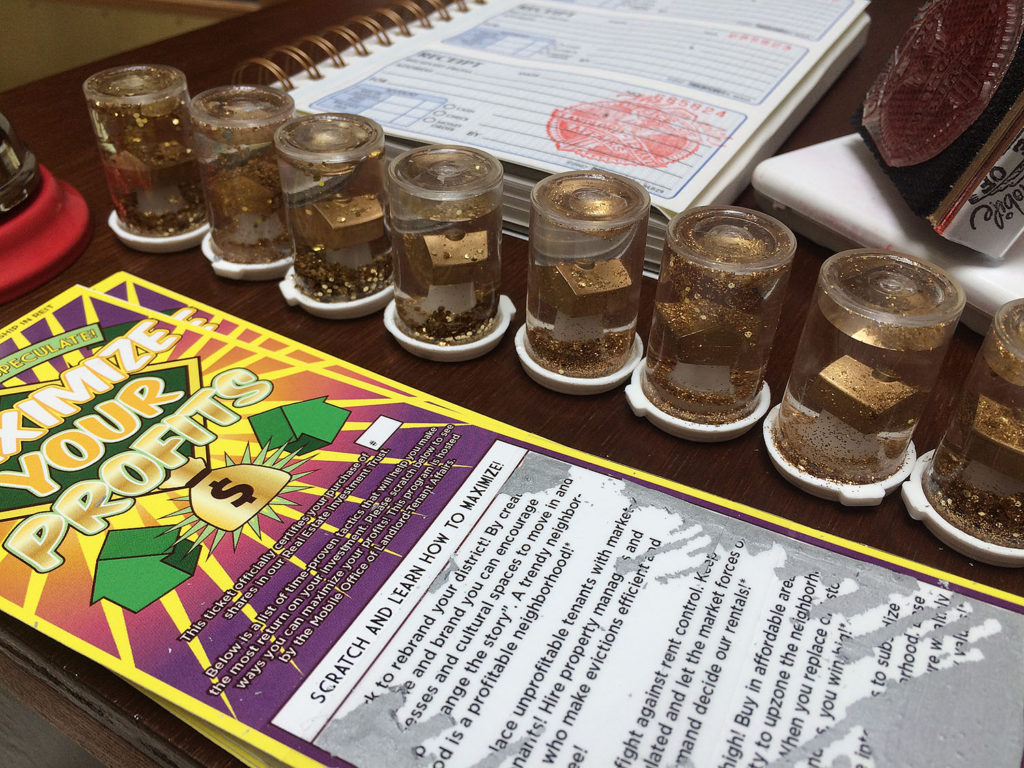
Those We Glimpse: Gathering Our Queer Ancestors (more here)
(ongoing participatory series)
For many of us, coming out as queer casts us out from our own “official” family stories and leaves us searching for ancestors–for that larger web from which we draw strength and context.
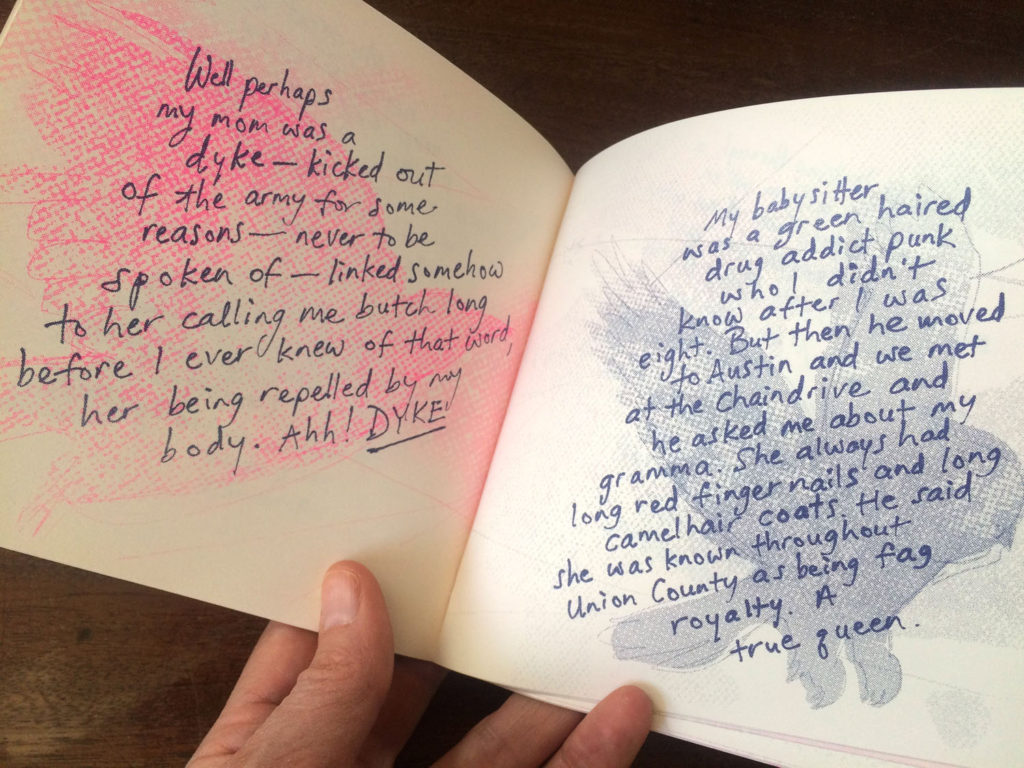
Fabric: Raveling/Unraveling (more here)
In the context of escalating evictions throughout the Bay Area, queers occupy a complicated role, both as people at risk for displacement and sometimes as first-wave gentrifiers. What does “home” look like when you pull it out of a particular building, or neighborhood or geography? When circumstances move us, willingly or unwillingly, how do we take “home” with us? How do we prepare to make new home in new places, and who do we prepare to make it with?
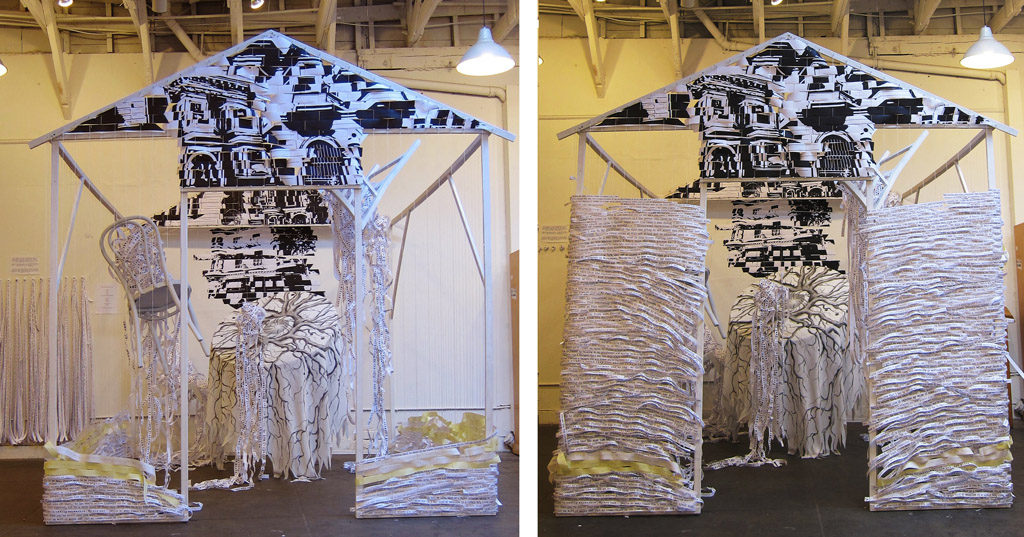
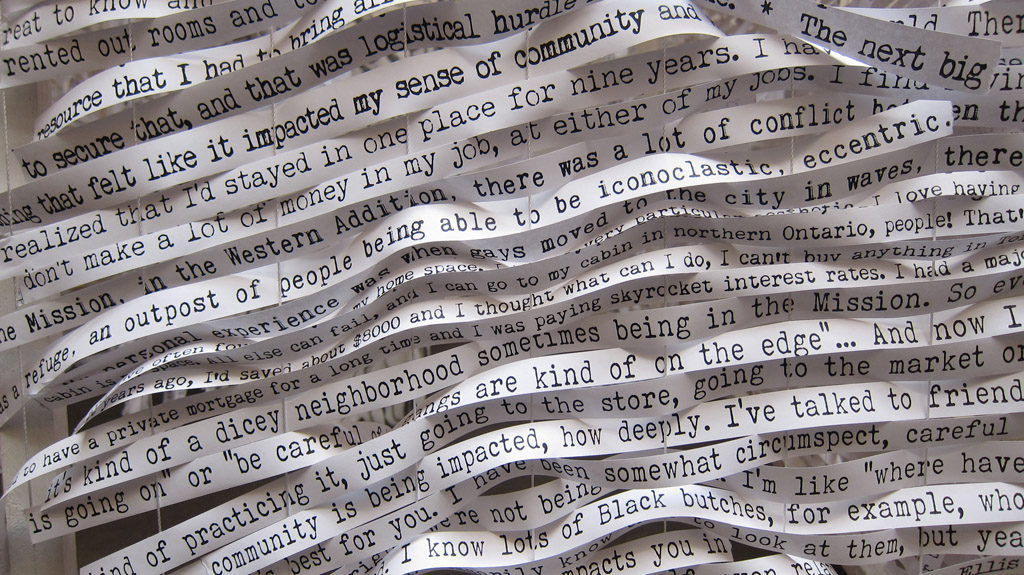
More work at www.zephrocious.com…
